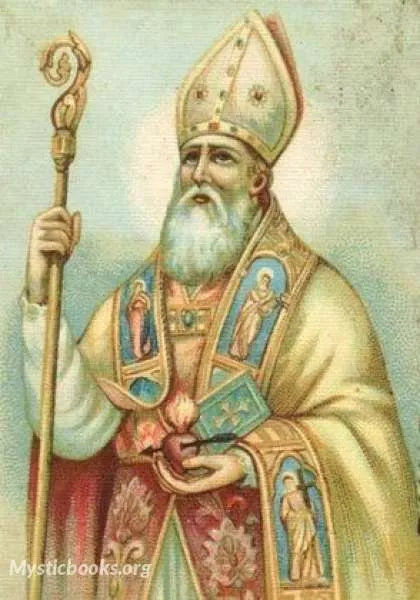
Timeline
Title
Country/Nationality
Saint Augustine of Hippo
Augustine of Hippo also known as Saint Augustine, was a theologian, philosopher, and the bishop of Hippo Regius in Numidia, Roman North Africa. His writings influenced the development of Western philosophy and Western Christianity, and he is viewed as one of the most important Church Fathers of the Latin Church in the Patristic Period. His many important works include The City of God, On Christian Doctrine, and Confessions.
According to his contemporary, Jerome, Augustine "established anew the ancient Faith". In his youth he was drawn to the major Persian religion, Manichaeism, and later to Neoplatonism. After his conversion to Christianity and baptism in 386, Augustine developed his own approach to philosophy and theology, accommodating a variety of methods and perspectives. Believing the grace of Christ was indispensable to human freedom, he helped formulate the doctrine of original sin and made significant contributions to the development of just war theory. When the Western Roman Empire began to disintegrate, Augustine imagined the Church as a spiritual City of God, distinct from the material Earthly City. His thoughts profoundly influenced the medieval worldview. The segment of the Church that adhered to the concept of the Trinity as defined by the Council of Nicaea and the Council of Constantinople closely identified with Augustine's On the Trinity.
Augustine is recognized as a saint in the Catholic Church, the Eastern Orthodox Church, and the Anglican Communion. He is also a preeminent Catholic Doctor of the Church and the patron of the Augustinians. His memorial is celebrated on 28 August, the day of his death. Augustine is the patron saint of brewers, printers, theologians, and a number of cities and dioceses. Many Protestants, especially Calvinists and Lutherans, consider him one of the theological fathers of the Protestant Reformation due to his teachings on salvation and divine grace. Protestant Reformers generally, and Martin Luther in particular, held Augustine in preeminence among early Church Fathers. Luther was, from 1505 to 1521, a member of the Order of the Augustinian Eremites.
In the East, his teachings are more disputed and were notably attacked by John Romanides. But other theologians and figures of the Eastern Orthodox Church have shown significant approbation of his writings, chiefly Georges Florovsky. The most controversial doctrine associated with him, the filioque, was rejected by the Orthodox Church. Other disputed teachings include his views on original sin, the doctrine of grace, and predestination. Nevertheless, though considered to be mistaken on some points, he is still considered a saint and has influenced some Eastern Church Fathers, most notably Gregory Palamas. In the Orthodox Church his feast day is celebrated on 15 June. The historian Diarmaid MacCulloch has written: "Augustine's impact on Western Christian thought can hardly be overstated; only his beloved example, Paul of Tarsus, has been more influential, and Westerners have generally seen Paul through Augustine's eyes."
Augustine of Hippo, also known as Saint Augustine or Saint Austin, is known by various cognomens throughout the many denominations of the Christian world, including Blessed Augustine and the Doctor of Grace.
Hippo Regius, where Augustine was the bishop, was in modern-day Annaba, Algeria.
Augustine was born in 354 in the municipium of Thagaste (now Souk Ahras, Algeria) in the Roman province of Numidia. His mother, Monica or Monnica, was a devout Christian; his father Patricius was a pagan who converted to Christianity on his deathbed.
At the age of 11, Augustine was sent to school at Madaurus (now M'Daourouch), a small Numidian city about 19 miles (31 km) south of Thagaste. There he became familiar with Latin literature, as well as pagan beliefs and practices.
At the age of 17, through the generosity of his fellow citizen Romanianus, Augustine went to Carthage to continue his education in rhetoric, though it was above the financial means of his family. In spite of the good warnings of his mother, as a youth Augustine lived a hedonistic lifestyle for a time, associating with young men who boasted of their sexual exploits. The need to gain their acceptance forced inexperienced boys like Augustine to seek or make up stories about sexual experiences.
Augustine began a relationship with a young woman in Carthage. Though his mother wanted him to marry a person of his class, the woman remained his lover for over fifteen years and gave birth to his son Adeodatus (372–388), which means "Gift from God", who was viewed as extremely intelligent by his contemporaries. In 385, Augustine ended his relationship with his lover in order to prepare to marry a ten-year-old heiress. (He had to wait for two years because the legal age of marriage for women was twelve.) By the time he was able to marry her, however, he had decided to become a Catholic priest and the marriage did not happen.
In late August of 386, at the age of 31, having heard of Ponticianus's and his friends' first reading of the life of Anthony of the Desert, Augustine converted to Christianity.
Shortly before Augustine's death, the Vandals, a Germanic tribe that had converted to Arianism, invaded Roman Africa. The Vandals besieged Hippo in the spring of 430, when Augustine entered his final illness. According to Possidius, one of the few miracles attributed to Augustine, the healing of an ill man, took place during the siege. According to Possidius, Augustine spent his final days in prayer and repentance, requesting the penitential Psalms of David be hung on his walls so he could read them. He directed the library of the church in Hippo and all the books therein should be carefully preserved. He died on 28 August 430. Shortly after his death, the Vandals lifted the siege of Hippo, but they returned soon after and burned the city. They destroyed all but Augustine's cathedral and library, which they left untouched.
Augustine was canonized by popular acclaim, and later recognized as a Doctor of the Church in 1298 by Pope Boniface VIII. His feast day is 28 August, the day on which he died. He is considered the patron saint of brewers, printers, theologians, and a number of cities and dioceses. He is invoked against sore eyes.
Books by Saint Augustine of Hippo
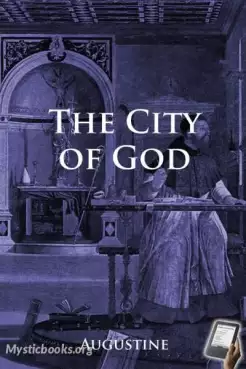
The City of God, Volume 1
On the city of God against the pagans, often called The City of God, is a book of Christian philosophy written in Latin by Augustine of Hippo in the early 5th century AD. The book was in response to allegations that Christianity brought about the dec...
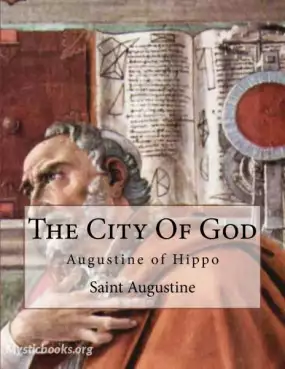
The City of God, Volume 2
On the city of God against the pagans, often called The City of God, is a book of Christian philosophy written in Latin by Augustine of Hippo in the early 5th century AD. The book was in response to allegations that Christianity brought about the dec...

Confessions of St. Augustine
Confessions is an autobiographical work by Saint Augustine of Hippo, consisting of 13 books written in Latin between AD 397 and 400. The work outlines Saint Augustine's sinful youth and his conversion to Christianity. Modern English translations of i...

On Christian Doctrine
De doctrina Christiana, a theological text written by Augustine of Hippo. It consists of four books that describe how to interpret and teach the Scriptures. The first three of these books were published in 397 and the fourth added in 426. By writing...

The Enchiridion of Augustine
As the title indicates, the work is organized according to the three graces necessary for the Christian worship of God: Faith, Hope and Love. Under Faith, Augustine explains the use of the Apostles' Creed, in teaching Christian doctrine and in refuti...
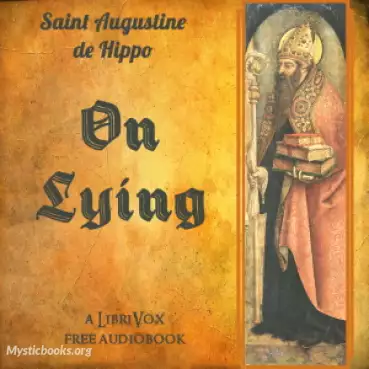
On Lying
I have also written a Book on Lying, which though it takes some pains to understand, contains much that is useful for the exercise of the mind, and more that is profitable to morals, in inculcating the love of speaking the truth. This also I was mind...
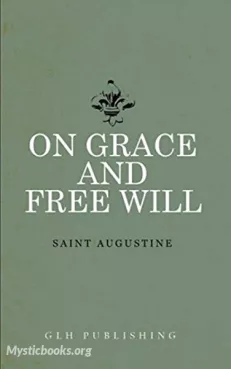
On Grace And Free Will
It explores the complex relationship between grace and free will, two concepts that are central to Augustine's understanding of salvation and the nature of God. Written in the early 5th century AD, "On Grace and Free Will" is a seminal work of Chris...
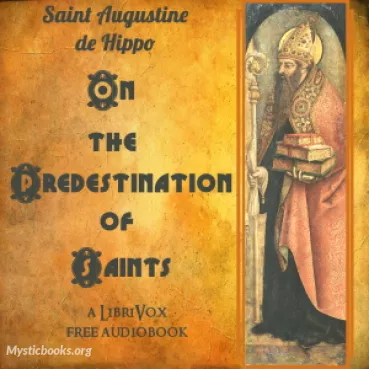
On The Predestination Of The Saints
It focuses on the concept of predestination, which refers to the idea that God has already determined which individuals will receive eternal salvation and which will not. In "On the Predestination of the Saints," Saint Augustine addresses some of th...
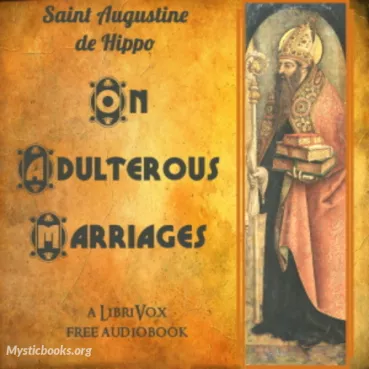
On Adulterous Marriages
It explores the controversial issue of marriage and adultery from a moral and religious perspective. Augustine's writing style is characterized by its depth and insight, as he delves into the complex and often contentious issue of adultery within th...
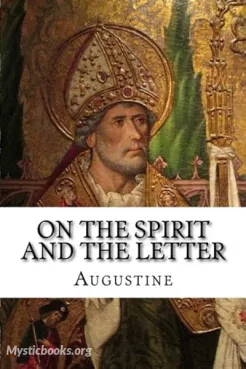
On the Spirit and the Letter
It is a profound and thought-provoking treatise that explores the relationship between the law and the spirit in Christian theology. Written in the 5th century CE, this influential work has been widely read and studied by theologians and scholars thr...

Of Holy Virginity
A powerful and moving defense of the Christian ideal of virginity. Of Holy Virginity is a treatise by Saint Augustine of Hippo, one of the most influential figures in the history of Christianity. In this work, Augustine argues that virginity is the...

Confessions (Outler translation)
Confessions (Latin: Confessiones) is the name of an autobiographical work, consisting of 13 books, by St. Augustine of Hippo, written between AD 397 and AD 398. Modern English translations of it are sometimes published under the title The Confessions...

City of God
Rome having been stormed and sacked by the Goths under Alaric their king, the worshippers of false gods, or pagans, as we commonly call them, made an attempt to attribute this calamity to the Christian religion, and began to blaspheme the true God wi...

Confessions (Pusey translation)
The Confessions outlines Augustine's sinful youth and his conversion to Christianity. It is widely seen as the first Western autobiography ever written, and was an influential model for Christian writers throughout the following 1,000 years, through...

Confessionum Libri Tredecim
"Confessions" is an autobiographical work by Saint Augustine of Hippo, written between 397 and 398 AD. It is a profound and introspective account of Augustine's life, from his early childhood to his conversion to Christianity. The book is divided int...

Civitate Dei Libri XXII
The City of God, written by Saint Augustine of Hippo in the 5th century AD, is a seminal work of Christian philosophy that responds to the accusations that Christianity was responsible for the decline of the Roman Empire. Augustine defends Christiani...

Ten Homilies on the First Epistle of John
In his Homilies on the First Epistle of John, Saint Augustine of Hippo explores the central theme of love in the apostle's writings. Augustine argues that love is the key to understanding the Christian faith and that it should be the guiding force in...
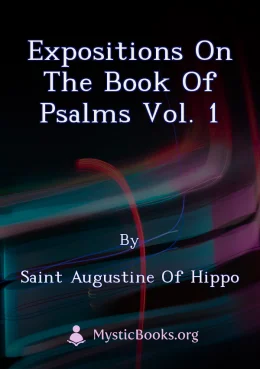
Expositions on the Book of Psalms Vol. 1
This volume is the first installment of Saint Augustine of Hippo's renowned commentary on the Book of Psalms. It focuses on the first thirty-six Psalms, providing in-depth interpretations and theological insights into these ancient scriptures. August...

Expositions on the Book of Psalms Vol. 2 - Psalms 37-52
This volume presents a collection of sermons delivered by Saint Augustine of Hippo on Psalms 37-52. Augustine, a prominent figure in early Christian thought, delves into the meaning and significance of these psalms, offering insights into their theol...

Expositions on the Book of Psalms Vol. 3 - Psalms 53-75
A collection of sermons by Saint Augustine of Hippo on Psalms 53-75, offering insightful commentary and spiritual guidance. These poetic and meditative discourses explore the themes of faith, hope, and the human condition, providing readers with a de...
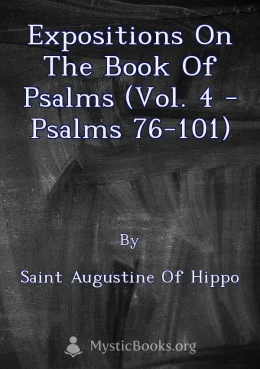
Expositions on the Book of Psalms (Vol. 4 - Psalms 76-101)
This volume of Saint Augustine's Expositions on the Psalms includes his sermons on Psalms 76-101. Augustine's sermons are known for their poetic language, devotional insights, and theological depth. In these sermons, Augustine explores the themes of...
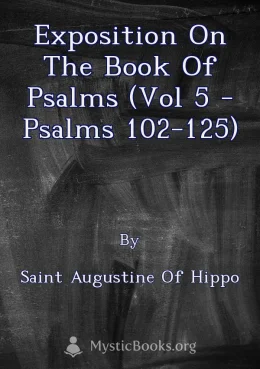
Exposition on the Book of Psalms (Vol 5 - Psalms 102-125)
This collection of sermons, delivered by Saint Augustine, provides a profound commentary on the Psalms of David. Augustine's insightful interpretations delve into the spiritual and theological meanings behind these biblical verses, offering guidance...

Exposition on the Book of Psalms (Vol 6 - Psalms 126-150)
This book is a collection of sermons given by Saint Augustine of Hippo on Psalms 126-150. These sermons provide a detailed exegesis of the Psalms, exploring their meaning and significance for the Christian faith. They offer profound insights into the...